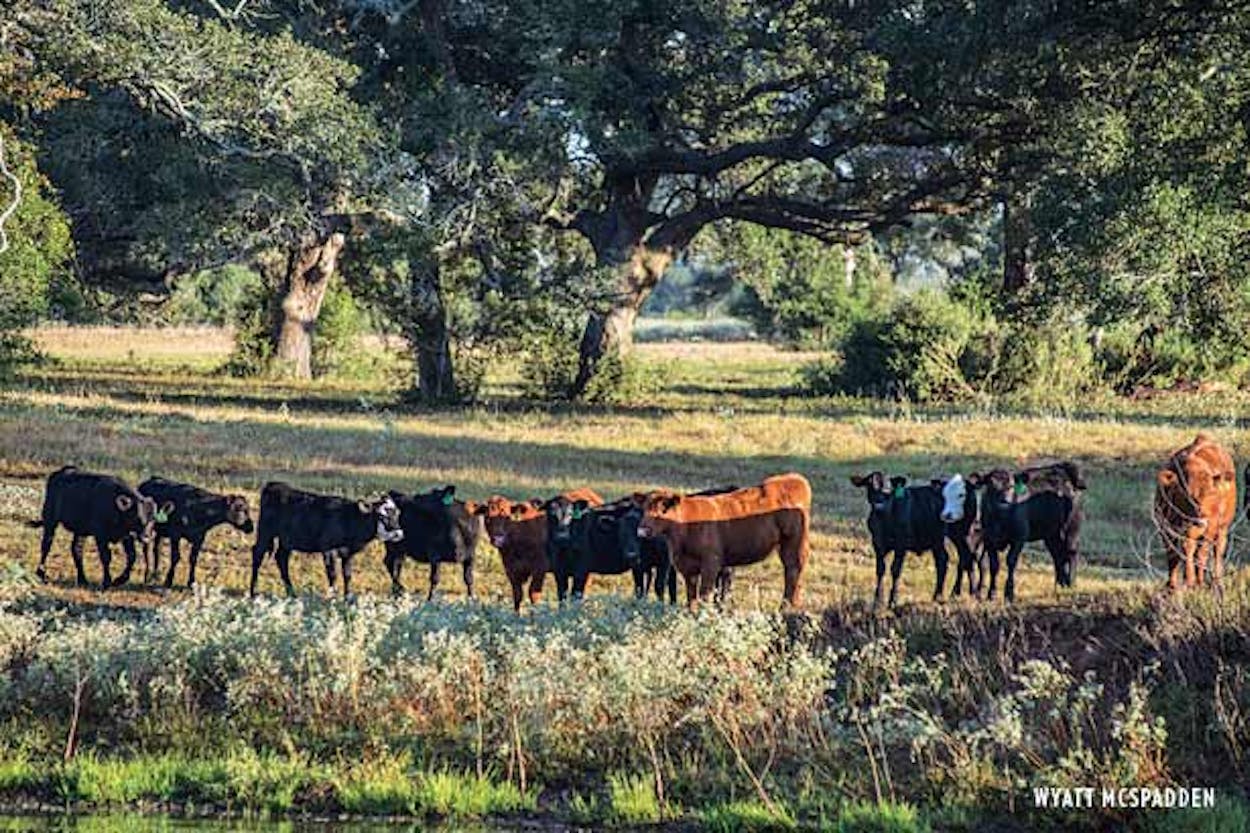TEXAS BARBECUE IS NOT Southern barbecue because Texas is not the South. Okay, it is the South, but it’s the extraterritorial South, the afterthought South, that inelegant cartographic appendage you see on the map of the old Confederacy. It’s an unavoidable fact that Texas, against the ardent wishes of Governor Sam Houston—“My God, is it possible that all the people have gone mad?”—voted to secede from the Union. But let’s do a little quantitative history. Out of 122 Texas counties, 18 voted against secession in 1861. Some of these were North Texas counties bordering the Red River, but the largest cluster of Unionist sentiment was in the center of the state, in those very counties through which today’s pilgrims are most likely to pass as they make their stops along barbecue’s Sacred Way.
In Williamson County, today the home of Louie Mueller Barbecue, secession was defeated by 480 to 349 votes. In Travis County, from whose soil would one day spring Aaron Franklin’s original food trailer, the vote was 704 to 450 against. Snow’s BBQ, which this magazine crowned as the state’s number one barbecue joint in 2008, is in Lexington, which before the Civil War was part of Burleson County. Yes, Burleson voted overwhelmingly to leave the Union, but Lexington was in the western part of the county, making it tantalizingly close, for the purposes of my thesis, to Bastrop County, which narrowly defeated secession by 17 votes.
This leaves us with the problem of Lockhart, where Kreuz Market and Black’s Barbecue are located and which awkwardly resides in historically secessionist Caldwell County. But like Llano County to the northwest—home of Cooper’s Old Time Pit Bar-B-Que—Caldwell is so squeezed in among Union-friendly counties that who knows what a little redistricting might have accomplished?
The point is that the style of barbecue that has come to be regarded as most ineluctably Texan—beef brisket smoked for long hours, uncorrupted by sauce, served on butcher paper—is the product of a region that did not conclusively think of itself as geographically or ideologically bound to the South. If Central Texas was an independent republic of unsettled antebellum thought, barbecue was its national dish.
It could be argued—and I’m happy to argue it as long as I don’t have to prove it—that our state’s barbecue heritage and its challenge to monolithic secessionist fervor arose from the same source: a little thing called the Verein zum Schutze deutscher Einwanderer in Texas.
The Society for the Protection of German Emigrants in Texas was a colonization enterprise begun in the 1840’s to establish the newly independent republic as a prime destination for German citizens wanting to start over in a new land. Some seven thousand people came, and during the same time period another two thousand or so German-speaking natives of Alsace embarked for Texas with a French entrepreneur named Henri Castro.
The Germans took up residence in a broad settlement belt that ran from the Gulf Coast to the Hill Country. A sizable population settled west of cotton country, where the land was cheaper, the soil thinner, the landscape more rugged, and where the sight of cattle grazing across sweeping grasslands eventually generated more cultural romance than the spectacle of pigs rooting in a dark forest. They brought beer and singing societies and sauerkraut and sausages and the Old World science of patiently smoking meat over hardwood coals until it acquired the then-unnamed attributes—the bark, the smoke ring, the meat caramel—that give modern-day barbecue fussbudgets so much to talk about.
They also brought cultural and political attitudes that were forged far away from the slaveholding South, the place from whence the state’s first wave of Anglo settlers had mostly come, some twenty years earlier. Later, when the Civil War came, many of the German immigrants were happy to go along with the pro-slavery, pro-secession majority, but there were enough subscribers to abolitionist newspapers like the San Antonio-Zeitung and enough delegates willing to stand up in conventions and declare slavery to be evil that many Texans began to regard Germans as a fifth column.
One of the many little Hill Country towns where these Germans settled was Comfort, the birthplace, a century or so later, of Buzzie’s Bar-B-Q (which later moved to nearby Kerrville). Comfort is also the site of one of the most poignant monuments in Texas, a simple limestone obelisk with the words “Treue der Union” carved on its front. “Treue der Union” means “Loyalty to the Union,” and the monument honors the 36 men, most of them Germans, who were killed by local Confederate troops in 1862 as they attempted to flee to Mexico rather than fight for the South in the Civil War.
The war is long over, and though certain barbecue matters—mop sauce versus dry rub, oak versus hickory, white bread versus crackers—seem like they will defy adjudication forever, it’s a safe bet that the descendants of those dead German Unionists and the Confederates who killed them would unite in agreeing that vinegary pulled pork with a scoop of coleslaw on top is not something they would care to eat.
Their meat, and ours, is beef, the meat of wide-open spaces, the thing that Southerners don’t talk about when they talk about barbecue. Texans may have made a few ill-considered choices here and there in our history, but brisket is not one of them. If our right to define it as the cornerstone of proper barbecue is ever threatened, we will not hesitate to secede again—but this time from the South.
(This story originally appeared in the June 2013 issue of Texas Monthly.)






